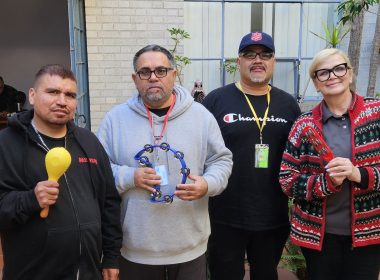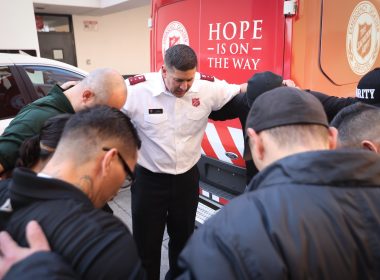An open letter to the Witnesses for Christ
by Bob Docter –
Have you ever sat in a courtroom and heard your name called as a witness to some action? You will experience many changes – physically, emotionally, socially – even spiritually. You will feel your rapid heart rate as either excitement or fear. The word you choose will affect the way you think. If you perceive it as excitement, you will think clearly and begin to relax. If you feel it as fear your mind will go on overload, stress will take over, and you will find walking to the witness stand very difficult.
The officious, sneering, critical clerk will hand you a book. He’ll order: “Put your right hand on the book.” Then he will rattle off some words at the speed of light: “Do you solemnly swear that the testimony you are about to give is the truth, the whole truth, nothing but the truth, so help you God?
You look to your right – that’s your hand in the air. You look to your left – that’s a Bible with your hand on it. You stammer two syllables: “I do.”
The clerk says something you perceive as “We got you now – you fake. Actually, his words were something like: “You may take your seat now.”
Somewhere between the middle of the courtroom and the chair, the thought springs into your mind: “Why did I think he called me a fake?”
The first part is easy. The attorney is nice, friendly and polite. He’ll throw you some softball questions like – how long have you been a Christian? What is your responsibility in your local church? All these to validate your credentials and your background.
(By the way – how would you describe your recent background – the nature of your relationships, what you read, how you deal with feelings – of doubt, hurt, anger, how you judge yourself.)
Then he will ask – “what does it mean to be a Christian?”
(Do you know?)
(By the way – the answer has to do with your belief system – your growing faith and how that faith impacts your decision-making, specifically in the nature of your relationships – with God and with people. What God wants from us is a relationship with him and love for our neighbor.)
I hope you get close to an amplified rendition of that response.
He’ll say: “Thank you very much,” and then turn to the other lawyer and say: “Your witness.”
The other guy fastens his eyes on you – glares contemptuously and grins sarcastically. He’ll say with a sardonic tone: “So you call yourself a Christian – what’s the evidence of tha? In a court of law, we deal in evidence,” he shouts.
You gulp. Your mind goes blank. Your thoughts say: “Hey God” — and before you can say the word “help” the answer comes out – sharp and sure. “ME!” you say – I’m the evidence!
The guy’s eyes open wide, startled, a flash of fear crosses his face.
Then you go on. You describe the nature of the change that took place in your feelings about others and yourself – in the way you treat others, and the choices you make in your own life.
Keep it personal – it’s got to be about you. You don’t claim perfection because it’s impossible in humans. God didn’t make us that way. He made us human and modeled how he hopes we will treat others. Every once in awhile you disappoint him and yourself, but you receive forgiveness because you maintain a connection with God and make amends to anyone you’ve hurt and with God.
The guy has his sneer back on his face. “So,” he says, looking for some other way to get you, “so, this sounds like you follow this other law breaker – this Jesus who received the death penalty for his crimes against society.”
You note that he has called you a lawbreaker, and say, “Yes, I do.” (Keep answers short in cross examination.)
“Well then,” he says with a gloating look, “is Jesus God?”
“Yes!” you say.
“Oh, really?” he says sardonically. “Explain that please.” (His big mistake.)
And so you do. You speak with conviction about the mystery that is God – about the nature of faith – about how belief systems change our behavior according to the nature of our beliefs – about reported miracles – about a world that is better now than it was previously. You speak of Jesus, his sons ship, the prophetic teaching of his coming, his life and his teaching. You avoid clichés and church terminology. You speak of the Army and its commitment to the disenfranchised, the forgotten, the hurt and weak.
You’re in the middle of a statement when he says: “Move to strike all of the foregoing as irrelevant.”
Your lawyer stands and reminds the judge that you only answered a direct question.
The judge says: “Overruled!” and the cross examiner dismisses you.
As you pass him, he says quietly: “Maybe we can talk about something on my mind after the trial.”
You agree.
Your session has a great name. I hope you know what it means to you personally. I hope you are able to put the claim of that title into action.
Be ready!
Vaya con Dios.









